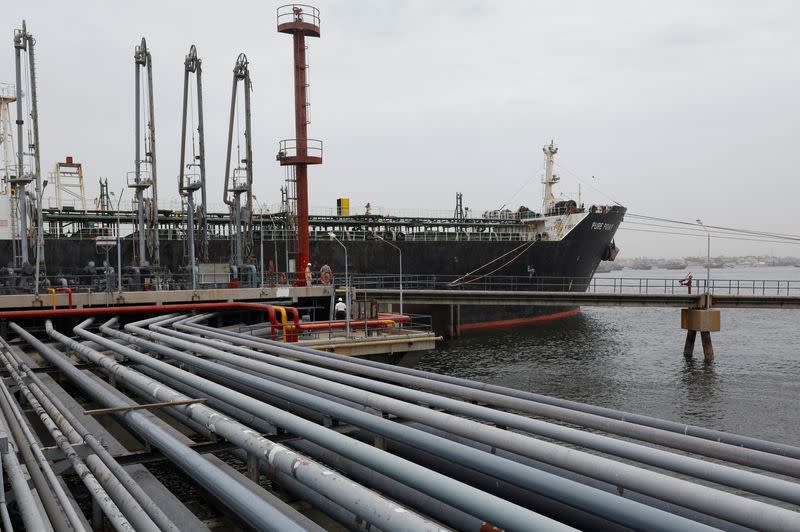Russia says secondary sanctions are hurting export revenues, oil payments

By Elena Fabrichnaya and Alexander Marrow
MOSCOW (Reuters) - Expanded sanctions on Russia and enhanced pressure on countries that Moscow considers friendly are hurting Russian firms' export revenues and creating oil payment issues, the Bank of Russia said on Friday.
The United States has hit Russia with waves of Ukraine-related sanctions and threatened secondary sanctions on foreign banks aiding transactions with Moscow. That has prompted some Chinese banks to limit dealings with Russian companies.
"The widening of sanctions and pressure on friendly countries leads to companies' reduced export revenue," the central bank said in a report on financial stability in a section titled "main vulnerabilities".
Russia distinguishes between countries that imposed sanctions over its actions in Ukraine and those that did not by calling them 'unfriendly' and 'friendly'.
"Unfriendly countries are hindering not only the sale of hydrocarbons, but also the realisation of major investment projects," the bank said. "Against the backdrop of secondary sanctions, supply chains and payment mechanisms are becoming more complicated, which leads to higher import prices and supply disruptions."
The threat of secondary sanctions has also slowed Russian banks' increasing the number of correspondent accounts in friendly jurisdictions, the central bank said. Since the start of 2022, the number of correspondent accounts in U.S. dollars and euros has dropped by 55%, it said.
U.S. Treasury Secretary Janet Yellen on Tuesday said Washington's new authority to hit banks with secondary sanctions if they aid Russian military-related transactions had helped to frustrate Russia's efforts to procure goods needed for the conflict in Ukraine, but that more work was needed.
Yellen said the most concerning Russian sanctions evasion activity was coming through China, the United Arab Emirates and Turkey. She added that the Treasury was "working to disrupt evasion wherever we see it, from Central Asia to the Caucasus and throughout Europe."
(Reporting by Elena Fabrichnaya in Moscow and Alexander Marrow in London; Editing by Toby Chopra)

 Yahoo Finance
Yahoo Finance 